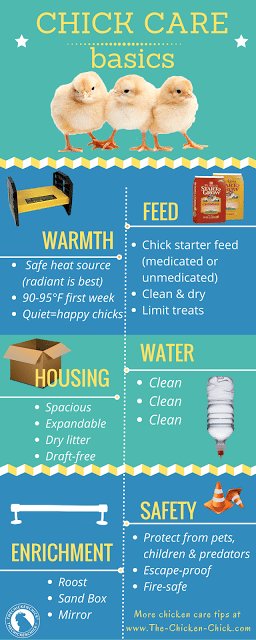
A Comprehensive Guide to Nurturing Baby Chicks: A Journey from Hatchling to Healthy Hen
Introduction
The arrival of baby chicks is a delightful experience, heralding the promise of new life and the joy of raising poultry. However, caring for these fragile creatures requires a dedicated approach and a thorough understanding of their specific needs. This comprehensive guide will provide you with all the essential knowledge and practical tips to ensure the well-being and thriving development of your baby chicks.
Preparing the Brooder
Before the chicks arrive, it is crucial to establish a suitable brooder that will provide a safe and comfortable environment for their first few weeks of life. The brooder should be:
- Spacious: Allow at least 0.5 square feet of space per chick.
- Warm: Maintain a temperature of 95-100°F (35-38°C) for the first week, gradually reducing it by 5°F (3°C) each week until reaching 70°F (21°C).
- Well-ventilated: Ensure adequate airflow to prevent ammonia buildup.
- Dry: Provide a deep layer of absorbent bedding, such as wood shavings or straw.
- Clean: Disinfect the brooder thoroughly before use and maintain a clean environment throughout.
Feeding and Nutrition
Baby chicks have specific nutritional requirements for optimal growth and development.
- Starter Feed: Provide a high-quality starter feed specifically formulated for chicks, containing 18-20% protein.
- Fresh Water: Offer fresh, clean water at all times.
- Grit: Provide grit or small stones to aid in digestion.
- Supplements: Consider adding supplements, such as electrolytes or probiotics, to support their immune system and overall health.
Monitoring and Care
Regular monitoring and attentive care are essential for the well-being of baby chicks.
- Daily Inspections: Check chicks daily for any signs of illness or injury.
- Temperature Control: Monitor the brooder temperature closely and adjust as needed.
- Bedding Management: Keep the bedding clean and dry by removing soiled areas regularly.
- Handling: Handle chicks gently, supporting their bodies and avoiding squeezing.
- Vaccinations: Consult with a veterinarian about appropriate vaccinations to protect against common diseases.
Common Health Issues
Baby chicks are susceptible to various health issues, including:
- Pasty Butt: A condition where fecal matter sticks to the chick’s vent, blocking it.
- Coccidiosis: A parasitic infection that can cause diarrhea and weight loss.
- Marek’s Disease: A viral infection that can lead to tumors and paralysis.
- Respiratory Infections: Caused by bacteria or viruses, these infections can manifest as coughing, sneezing, and difficulty breathing.
Treatment and Prevention
Early detection and prompt treatment are crucial for managing health issues in baby chicks.
- Pasty Butt: Gently remove the fecal matter and clean the vent with warm water.
- Coccidiosis: Consult with a veterinarian for appropriate medication.
- Marek’s Disease: No cure exists, but vaccination can prevent infection.
- Respiratory Infections: Treat with antibiotics prescribed by a veterinarian.
Transitioning to the Coop
Once chicks are fully feathered and have developed their immune systems, they can be transitioned to the coop.
- Gradual Introduction: Allow chicks to explore the coop for short periods under supervision.
- Secure Environment: Ensure the coop is predator-proof and provides adequate shelter from the elements.
- Perches and Nesting Boxes: Provide perches for roosting and nesting boxes for egg-laying hens.
- Outdoor Access: Allow chicks access to an outdoor run or pasture for exercise and foraging.
Conclusion
Raising baby chicks is a rewarding experience that requires a commitment to their well-being and a comprehensive understanding of their unique needs. By following the guidelines outlined in this guide, you can provide your chicks with the optimal environment and care they need to thrive and develop into healthy, productive hens. Remember, patience, observation, and a genuine love for these feathered creatures are essential ingredients for a successful journey in raising baby chicks.
